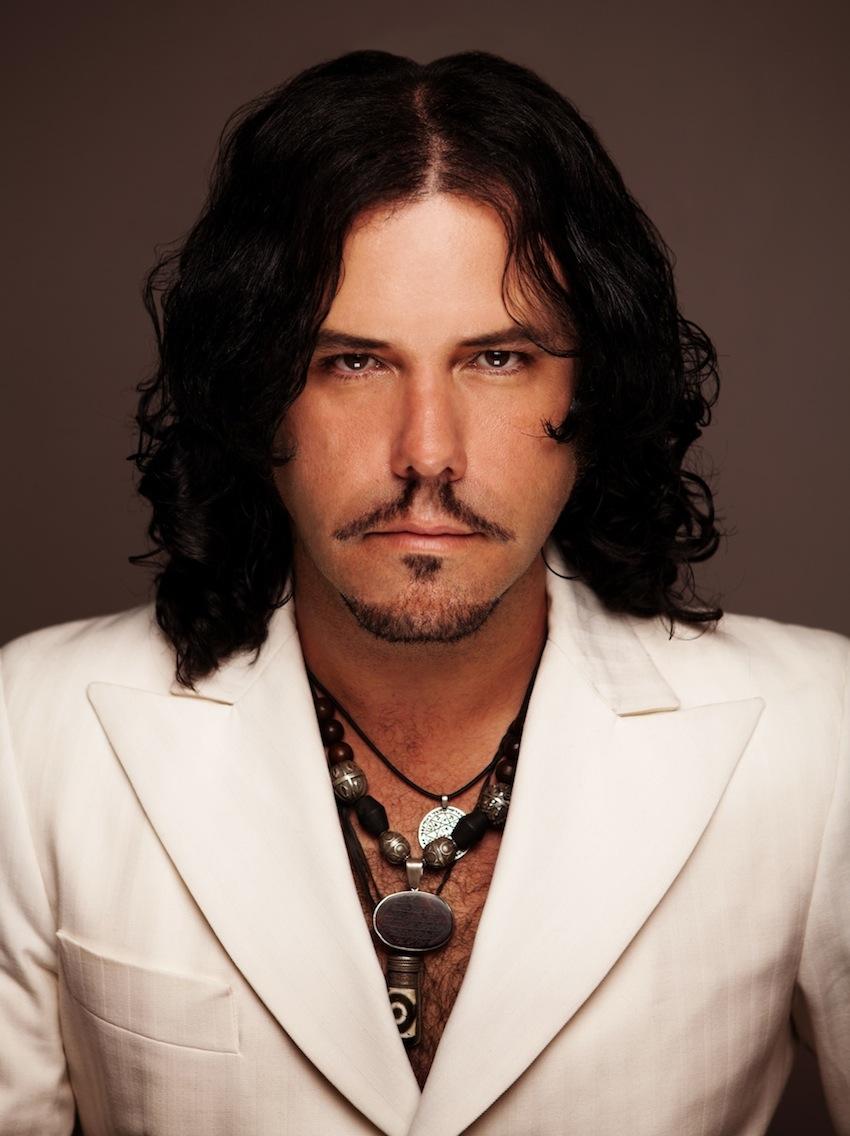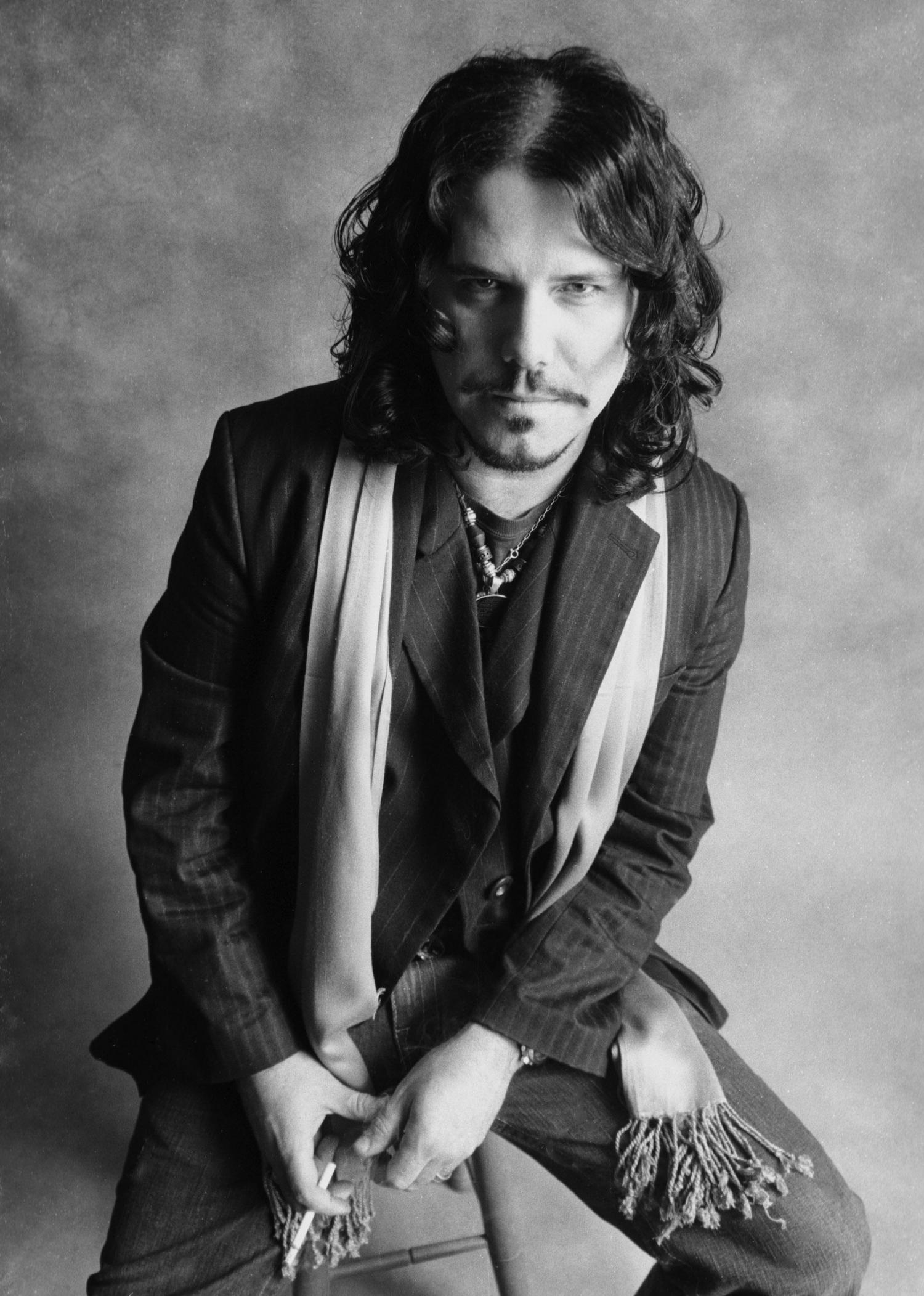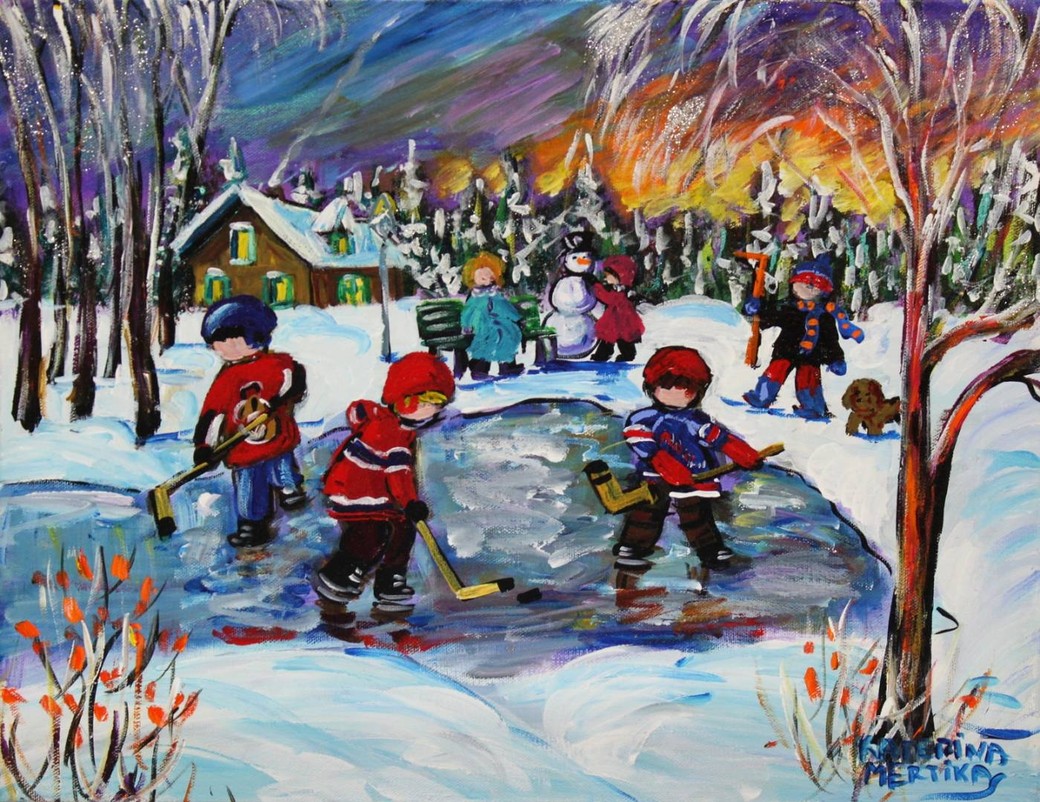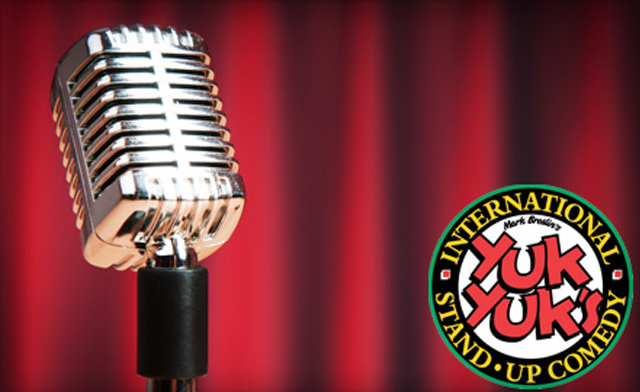
Jeff Martin: Transmissions on The Edges of Twilight
If coming events are said to cast their shadows before,
past events cannot fall to leave their impress behind them.
-Helena Petrovna Blavatsky
“Every man and every woman is a star,” whispers a voice from the edge of where the now meets the then, where the tactile meets the philosophical, where the desert finds the rain, where the ocean and sky are one and meaning is found between what is spoken and what is silence.
“Existence is pure joy…all the sorrows are but as shadows; they pass and are done but there is that which remains.” It is like the wind is speaking, returning words from a prophet of the past.
The moon slips behind a cloud.
For a moment only darkness and then a slice of light illuminates a figure dressed in black. His hair is the colour of midnight. He holds a guitar. One could imagine this to be Jeff Martin of The Tea Party…rock star…wordsmith…producer.
I have twenty minutes here.
The questions are limitless.
Time is not.
He is on tour now for Transmission, an album the band released twenty years ago following their hit The Edges of Twilight. The melodies of the Middle East gave way to electronica on an recording he once said was “an honest attempt at going somewhere poetically where most people would be unnerved to go.”
Though he’s been reflecting on the past, Martin pauses a moment to share that the band is working on something new, something that is still evolving but nearly ready to set loose into the wild.
“I’m still exploring,” he tells me. “It will never end.”

Talking with Martin seems to evoke this kind of ethereal landscape, as though every new piece of information gleaned still only has you scratching the surface. I imagine a fire, embers sending firefly like sparks into the dark between us as we both sit to partake in a brief conversation. There is much to ask but only moments to do so. I choose my questions wisely.
I ask him to speak of developing The Tea Party sound:
“I think it was something that was there even as a kid. I was a real Beatles fanatic and the things that caught me even at a real young age were the works that George Harrison would do. There was just something about them. I don’t know if you believe in things like past lives and reincarnation but it was very strange for me because it was almost like when I heard that music it was like I was hearing it again. I mean, I remembered everything.”
Knowing of his studies on occult philosophy I wonder what three books most affected his life:
“There’s Book of the Law by Aleister Crowley. That book goes with me everywhere and has a lot to do with my philosophy in life,” he tells me adding The Flowers of Evil by Charles Baudelaire and The Secret Doctrine by Helena Blavatsky to his list. I make note of future reading material.
Why did he seek more control over the group’s production?
“To tell you the truth, I would not want to put the burden on someone else who has to figure out what’s going on inside my head. Even though I was the producer I didn’t really have the engineering skills on the first record so I got to work with some of the best. That built my skills more and more, learning techniques in the analog world which apply even now in this digital age. I think the records are just getting better and better.”
On comparisons to Jim Morrison:
“Well, on the first records our wings were still pretty wet. I don’t disagree with the critics at the time, saying those guys sound like Led Zeppelin or that guy sounds like Jim Morrison. It does sound like that but those were some pretty kick ass bands.”
On how they shaped The Edges of Twilight:
“The thing was, on The Edges of Twilight, this was The Tea Party sound now. Here it was. We established ourselves as a group. Once that record came out any rock band that started to sound Middle Eastern started getting compared to The Tea Party."
He goes on: "Those were the days of really deep recording budgets, you know. A lot of bands may have taken that money and put it towards drugs, alcohol and girls. What did we do? We pretty much bought a music store, every instrument that we wanted I bought. We filled the place like it was a world music studio.”
I ask about the release falling at the same time as that of those very musical icons the band was being compared to, something that helped more than it hindered.
“I was a bit pissed because my hero Jimmy Page was coming out at the same time with No Quarter, with the Egyptian orchestra and we’d just released The Edges of Twilight and now people were going to think we were just following those guys. But we had started the process long before. But then it caught fire and that’s why we got to open up for them.”
 Transmission would follow the group’s biggest success. They knowingly walked a different path not wanting to replicate where they had just been.
Transmission would follow the group’s biggest success. They knowingly walked a different path not wanting to replicate where they had just been.
“We couldn’t do The Edges of Twilight II. I didn’t want the band to rest on its laurels, none of wanted that. We wanted to challenge ourselves. I was very interested in electronic music at the time, really experimental stuff coming out of Germany, and I was curious to see if a chemical marriage could work between hard rock and electronic music. That’s how that came about. It’s a very different animal and I’m very proud of it.”
Our time is growing shorter. I push on, asking about the songs from Transmission, how they were not played as frequently, if at all, on past tours. Martin speaks of the new life they have been given in revisiting them live:
“The beauty about The Tea Party live is how we interpret our own music. What I am finding playing these songs now is that it’s rejuvenating the album. I always thought that album was not from a time or place. It’s relevant still today. I find I appreciate the songs a lot more.”
The band went their separate ways in 2005. Some say it was creative differences and Martin doesn’t dispel this stating that there were just too many cooks in the kitchen. How did he feel those first few steps moving forward without them?
“It was pretty scary. I changed everything. I left it all behind. I left Canada, moved to one of those remote parts of Ireland where no one knew who I was and just started over again. But it was the best move I could have made.”
He'd move again, this time to Australia where the band had developed perhaps a bigger following then they had here in Canada.
“Where I live is pretty close to paradise. There’s too much to say about it. I fell in love with Australia immediately. On the first tour that we did I couldn’t believe how receptive people were to our music. The lifestyle just resonated with me.”
Seven years had passed when the band decided to reunite. Did they feel the weight of that distance in between once together again?
“Honestly, the first rehearsal after the seven years, it was like nothing had changed. If anything, I noticed that Jeff and Stuart had gotten a lot better and they were outstanding before. It was amazing. Personally I think the band now is better than ever and we’re much better friends. We’re closer. There’s a new respect.”
I imagine the fire to be dying out, one more gasp of flame before the ashes. Martin, too, seems to be fading, returning back to where he came. I manage one more question, asking what he has found most rewarding from this time performing with the band.
“The reaction of the audience,” he says without hesitation.
“It’s a pretty good life. You get to play rock star and make people happy. It doesn’t get better than that.”
And, leaving me to wonder if he was ever really there to begin with, he’s gone.









